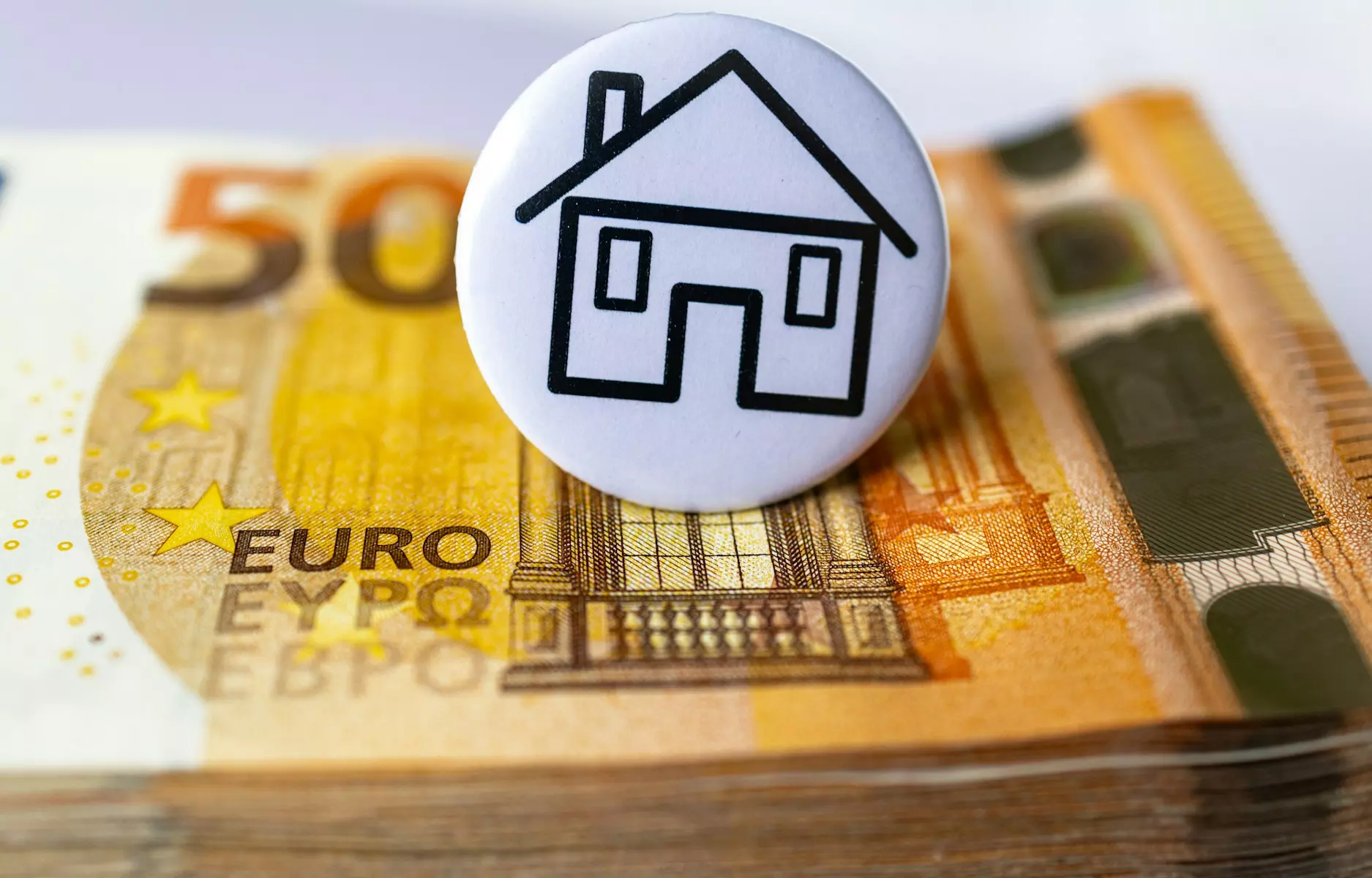Finding Your Ideal Home Across Europe: Tips and Advice for Homebuyers
Buying a home is one of life’s most significant decisions, and when that search extends across Europe’s diverse property landscape, the adventure becomes even more exciting and complex. Whether you’re a first-time buyer dreaming of a Portuguese coastal apartment or an experienced investor eyeing a Parisian pied-à-terre, understanding the nuances of different European markets is essential. Europe offers an incredible variety of properties, from centuries-old village houses in Tuscany to modern apartments in Berlin’s trendy neighborhoods. Each country presents unique opportunities, challenges, and regulations that can significantly impact your buying experience. This comprehensive guide will walk you through the essential aspects of purchasing property across Europe, helping you navigate legal requirements, financing options, and market conditions with confidence.
Get 50% OFF!
Subscribe to our newsletter and enjoy a 50% discount on all listing packages, no strings attached!

Understanding Europe’s Diverse Property Markets
Europe’s property markets are as varied as its cultures, languages, and landscapes. The Mediterranean countries like Spain, Portugal, and Greece typically offer more affordable options compared to Northern European nations such as Switzerland, Norway, or Denmark. For instance, you might find a three-bedroom villa in rural Spain for €200,000, while a similar-sized property in central Copenhagen could easily exceed €800,000. Understanding these price variations helps you set realistic expectations and identify markets that align with your budget and lifestyle preferences.
Market dynamics also differ significantly across regions. Countries like Germany and Austria have traditionally favored renting over buying, which has kept property prices relatively stable in many areas. Meanwhile, markets in Portugal and Spain have experienced rapid growth in recent years, partly driven by golden visa programs and remote workers seeking better quality of life. The UK market operates differently post-Brexit, with additional considerations for EU citizens. Before committing to any market, research current trends, average price per square meter, and future development plans that might affect property values. Consider factors like tourism impact, local employment rates, and infrastructure projects that could influence your investment’s long-term value.
Legal Requirements and Buying Regulations
Navigating the legal landscape is perhaps the most crucial aspect of buying property in Europe, as regulations vary dramatically from country to country. Most European nations allow foreign buyers to purchase property, but some impose restrictions on agricultural land or properties in border regions. For example, Switzerland has strict limitations on foreign ownership, requiring permits for non-residents in most cases. Denmark restricts foreign buyers unless they’ve lived in the country for five consecutive years. Meanwhile, countries like Spain, Portugal, France, and Italy welcome international buyers with relatively few restrictions, making them popular destinations for expatriates and retirees.
The buying process itself follows different procedures depending on the country. In France, the "compromis de vente" is a binding preliminary contract that commits both parties before the final deed. Spain requires a NIE (Número de Identidad de Extranjero), a tax identification number that all foreign buyers must obtain before purchasing property. Italy involves a "proposta di acquisto" followed by a "compromesso," with specific cooling-off periods. Here are key legal steps common across most European markets:
- Obtain necessary identification numbers or permits
- Hire a qualified local lawyer or notary
- Conduct thorough property searches and surveys
- Review all planning permissions and building regulations
- Understand tax implications, including purchase taxes and annual property taxes
- Verify there are no outstanding debts or liens on the property
- Complete all documentation in the local language with certified translations
Always budget for legal fees, which typically range from 1% to 3% of the property value, though this varies by country. In Germany, notary fees are regulated and usually around 1.5% to 2%, while in the UK, solicitor fees can vary more widely depending on the property’s complexity and location.
Financing Your European Home Purchase
Securing financing for a European property purchase requires careful planning, especially if you’re buying in a country where you’re not a resident. Many European banks are willing to lend to foreign buyers, but they typically require larger deposits, ranging from 30% to 40% of the property value, compared to the 10% to 20% often required for residents. Interest rates and mortgage terms also vary considerably across Europe. As of recent trends, countries like France and Germany offer some of the lowest mortgage rates in Europe, while Southern European nations tend to have slightly higher rates.
Your financing options generally fall into several categories. You can apply for a mortgage in the country where you’re buying, which often provides better rates and terms but requires navigating foreign banking systems and language barriers. Alternatively, you might secure financing from your home country bank, though this option is becoming less common and may involve higher interest rates. Some buyers choose to release equity from existing properties or use savings to purchase outright, avoiding mortgage complications entirely. Consider these important financing factors:
- Currency exchange risks and timing of transfers
- Tax implications in both your home country and the purchase country
- Insurance requirements, including life insurance for mortgage approval
- Early repayment penalties and flexibility of terms
- Additional costs like valuation fees, arrangement fees, and mortgage registration taxes
Working with a mortgage broker who specializes in international property purchases can save you considerable time and money. They understand which banks are most favorable to foreign buyers and can help you navigate the application process. Remember that mortgage approval can take longer for international buyers, sometimes up to three months, so factor this into your timeline.
Working with Local Real Estate Professionals
Building a reliable team of local professionals is absolutely essential for a successful European property purchase. Your team should include a real estate agent, a lawyer or notary, a property surveyor, and potentially a financial advisor familiar with international transactions. In many European countries, the role of the notary is particularly important. Unlike in some countries where notaries simply witness signatures, European notaries (especially in civil law countries like France, Spain, and Germany) play an active role in verifying the legality of the transaction and ensuring all parties understand their obligations.
Choosing the right real estate agent requires due diligence. Look for agents with experience working with international clients who can communicate effectively in your language. Verify their credentials and professional memberships with local real estate associations. In countries like France, agents must hold a "carte professionnelle," while Spanish agents should be registered with their local college of estate agents. Don’t hesitate to interview multiple agents before making your choice. Here’s what to look for in your professional team:
Essential qualities in a real estate agent:
- Proven track record with international buyers
- Transparent fee structure (typically 3% to 10% of purchase price, varies by country)
- Strong local market knowledge
- Professional accreditation and insurance
- Responsive communication style
What your lawyer should provide:
- Independent representation (not connected to the seller)
- Fluency in your language or access to qualified translators
- Experience with international property transactions
- Clear explanation of all costs and obligations
- Thorough due diligence on the property
Building relationships with local professionals also provides valuable insights into neighborhoods, future development plans, and off-market opportunities. Many of the best properties in Europe never make it to public listings, being sold through word-of-mouth and professional networks. Your agent might know about a perfect property before it’s officially marketed, giving you a competitive advantage.
Comparing Popular European Property Markets
| Country | Average Property Price | Foreign Buyer Restrictions | Typical Purchase Tax | Mortgage Availability |
|---|---|---|---|---|
| Spain | €1,800/m² | Minimal | 8-11% | Good for non-residents |
| Portugal | €1,600/m² | None | 6-8% | Excellent |
| France | €2,500/m² | None | 7-8% | Good with larger deposit |
| Italy | €1,900/m² | Minimal | 2-9% (varies) | Moderate |
| Germany | €3,500/m² | None | 10-12% | Good for residents |
| Greece | €1,400/m² | Minimal | 3-24% (progressive) | Improving |
Frequently Asked Questions
Can I get a mortgage as a non-resident in Europe?
Yes, most European countries offer mortgages to non-residents, though terms are typically less favorable than for residents. Expect to provide a larger deposit (30-40% instead of 10-20%) and possibly accept higher interest rates. Banks will scrutinize your income, credit history, and employment stability more carefully. Some countries, like Portugal and Spain, have well-established systems for lending to foreign buyers, while others may have more limited options.
How long does the property buying process take in Europe?
The timeline varies significantly by country. In the UK, the process typically takes 8-12 weeks from offer acceptance to completion. France usually requires 2-3 months due to mandatory cooling-off periods and thorough legal checks. Spain and Portugal average 2-3 months as well. Italy can take longer, sometimes 4-6 months, especially for older properties requiring extensive documentation. Factor in additional time if you need to obtain special permits or arrange international financing.
What are the ongoing costs of owning property in Europe?
Beyond the purchase price, budget for annual property taxes (ranging from 0.1% to 2% of property value depending on the country), community fees for apartments (€50-€300+ monthly), utility costs, insurance (typically €300-€800 annually), and maintenance. Some countries also charge wealth taxes on property holdings. If you’re not residing in the property year-round, consider property management fees (usually 10-15% of rental income if you rent it out).
Do I need to speak the local language to buy property in Europe?
While not strictly necessary, having some language skills certainly helps. Most legal documents must be in the local language, though you can work with translators. Many real estate agents in popular expat areas speak English, but having a bilingual lawyer is essential. All official documents you sign should be translated into a language you understand completely. Never sign anything you don’t fully comprehend, regardless of assurances from others.
What taxes will I pay when buying property in Europe?
Purchase taxes vary widely. Spain charges 8-11% depending on the region and whether the property is new or resale. France has notary fees of approximately 7-8% of the purchase price. Portugal charges 6-8% in transfer tax and stamp duty. Italy’s taxes range from 2% to 9% depending on whether it’s your primary residence and if you’re an EU citizen. Additionally, budget for legal fees (1-3%), agent fees (if applicable), and registration costs. Annual property taxes and potential wealth taxes also apply in many countries.
Is it better to buy property in my name or through a company?
This depends on your circumstances and goals. Buying through a company can offer tax advantages, especially if you plan to rent the property or own multiple properties. However, it also involves additional setup costs, annual accounting requirements, and may limit mortgage options. Some countries, like France, impose higher purchase taxes on company purchases. Consult with a tax advisor familiar with both your home country and the purchase country to determine the most beneficial structure for your situation.
Purchasing property across Europe opens doors to incredible lifestyle opportunities, investment potential, and the chance to immerse yourself in different cultures. While the process involves navigating various legal systems, financial considerations, and market conditions, thorough preparation and the right professional support make it entirely achievable. Remember that each European country offers distinct advantages, whether it’s Portugal’s golden visa program, Spain’s diverse property options, France’s sophisticated market, or Italy’s historic charm. Take your time to research thoroughly, visit properties multiple times if possible, and never rush into a decision based solely on emotion. The European property market rewards patient, informed buyers who understand local regulations and market dynamics. By following the guidance in this article and building a strong team of local professionals, you’ll be well-equipped to find your ideal European home. Whether you’re seeking a retirement haven, a vacation property, or an investment opportunity, Europe’s diverse markets have something to offer every buyer. Start your journey with clear goals, realistic budgets, and an openness to the adventure that comes with international property ownership.





Join The Discussion